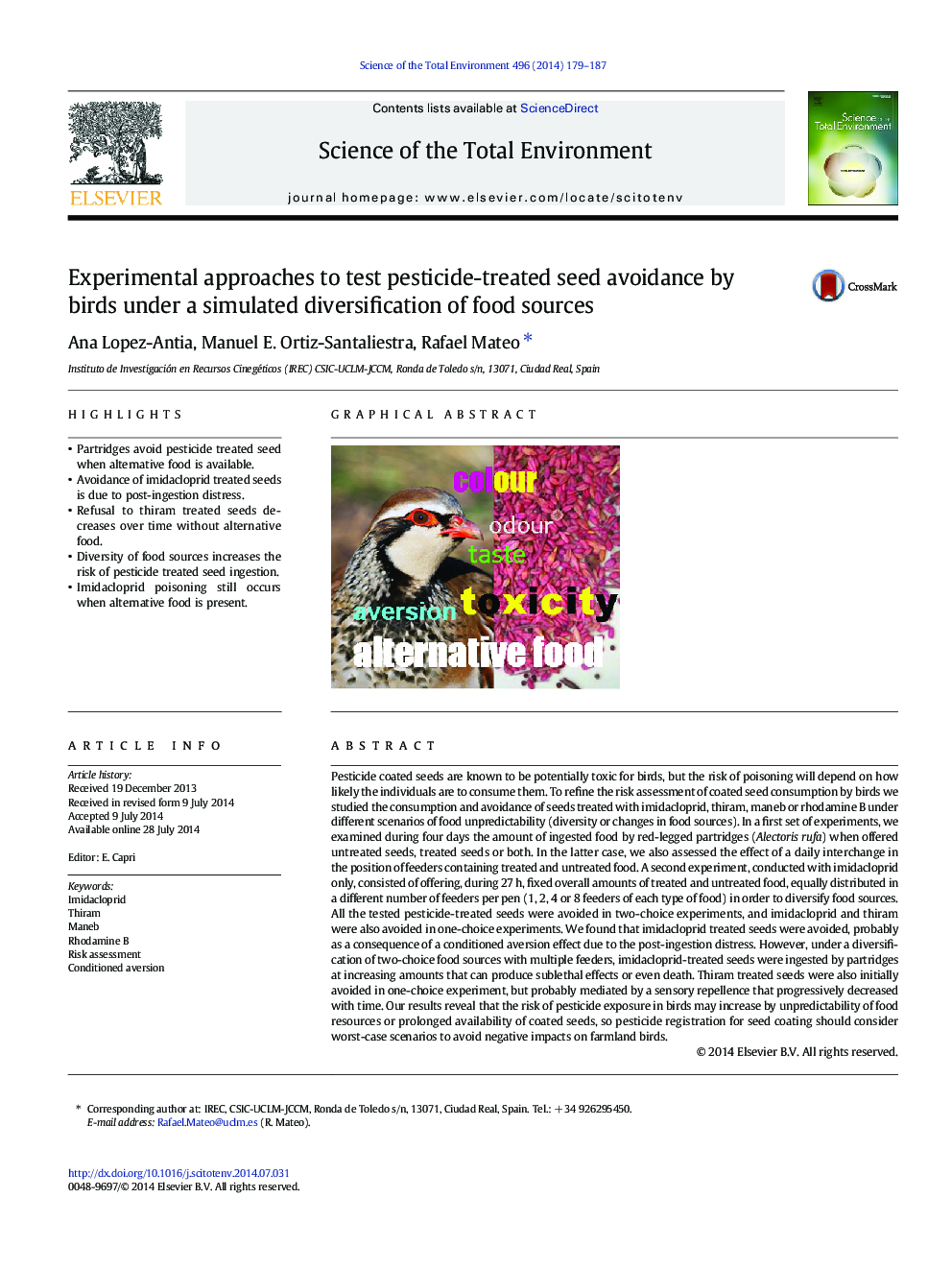| کد مقاله | کد نشریه | سال انتشار | مقاله انگلیسی | نسخه تمام متن |
|---|---|---|---|---|
| 6329427 | 1619776 | 2014 | 9 صفحه PDF | دانلود رایگان |
- Partridges avoid pesticide treated seed when alternative food is available.
- Avoidance of imidacloprid treated seeds is due to post-ingestion distress.
- Refusal to thiram treated seeds decreases over time without alternative food.
- Diversity of food sources increases the risk of pesticide treated seed ingestion.
- Imidacloprid poisoning still occurs when alternative food is present.
Pesticide coated seeds are known to be potentially toxic for birds, but the risk of poisoning will depend on how likely the individuals are to consume them. To refine the risk assessment of coated seed consumption by birds we studied the consumption and avoidance of seeds treated with imidacloprid, thiram, maneb or rhodamine B under different scenarios of food unpredictability (diversity or changes in food sources). In a first set of experiments, we examined during four days the amount of ingested food by red-legged partridges (Alectoris rufa) when offered untreated seeds, treated seeds or both. In the latter case, we also assessed the effect of a daily interchange in the position of feeders containing treated and untreated food. A second experiment, conducted with imidacloprid only, consisted of offering, during 27Â h, fixed overall amounts of treated and untreated food, equally distributed in a different number of feeders per pen (1, 2, 4 or 8 feeders of each type of food) in order to diversify food sources. All the tested pesticide-treated seeds were avoided in two-choice experiments, and imidacloprid and thiram were also avoided in one-choice experiments. We found that imidacloprid treated seeds were avoided, probably as a consequence of a conditioned aversion effect due to the post-ingestion distress. However, under a diversification of two-choice food sources with multiple feeders, imidacloprid-treated seeds were ingested by partridges at increasing amounts that can produce sublethal effects or even death. Thiram treated seeds were also initially avoided in one-choice experiment, but probably mediated by a sensory repellence that progressively decreased with time. Our results reveal that the risk of pesticide exposure in birds may increase by unpredictability of food resources or prolonged availability of coated seeds, so pesticide registration for seed coating should consider worst-case scenarios to avoid negative impacts on farmland birds.
135
Journal: Science of The Total Environment - Volume 496, 15 October 2014, Pages 179-187
